Grief 101
How to intentionally grieve and/or support loved ones non-awkwardly while they grieve.
Grief is one of the few things that every single person experiences. None of us escape it. And yet, it’s incredibly personal, nuanced and varied.
Two years ago, I lost my mom. She was the person who knew me the best and loved me the most. One day we were laughing and the next day, she couldn’t eat (fuck you, ALS).
All of a sudden I was in the worst club that no one wants to join: The Grief Club.
The loss left a huge hole in my heart. It also gave me a newfound understanding of grief and compassion for others who have lost people important to them.
Below is a list of tips to review if you’re grieving (or might be soon), as well as tips on how to show up and support a friend/loved one who is going through a seemingly-impossible time.
Tips for the Grieving
I’m sorry Your Person or one of your people died. It’s unfair. It didn’t happen for a reason. It’s not happening because God or the Universe or whomever thinks you can carry it. It makes no sense. Regardless if it was peaceful or violent, unexpected or overdo, someone you adored with your whole heart or someone who was a more complicated presence is your life:
Your grief matters. Your relationship matters. Your feelings matter.
And even in the throes of grief (ESPECIALLY in the throes of grief), you need to find ways to care for yourself and protect your psyche that feel authentic to you.
How to Grieve:
(esp if you have no idea where to start)
People who haven’t lost someone close to them yet will not get it. They'll try. They’ll be sad for you. They’ll bring you food and flowers. But they will not get it. They will not know what to say. Forgive them.
There’s nothing wrong with you for feeling devastated. Having big, intense feelings means you loved hard. As Juliana Hatfield said, "A heart that hurts is a heart that works."
There’s also nothing wrong with feeling other (messier) things like relief, gratitude, rage, abandonment, etc. forever.
Pick a few safe people to open up to. Set strong boundaries with anyone else who might make you feel anxious, stressed or misunderstood. If anyone implies your feelings or behaviors are wrong (“What do you mean you’re not giving a eulogy!? Stop crying - you have to be strong!”) then add them to the Boundaried List. Boy, bye.
If people start a sentence with, “At least,” just ignore the latter part of the sentence.
It doesn’t matter what you or anyone else wears to the funeral/memorial - it’s great you/they came at all 💜
But if you’re gonna go, don’t wear eye makeup. “Waterproof” mascara? Lol ok
Don’t judge your own feelings or reactions - if you don’t cry or even attend the funeral? It’s fine. You do you. (My mom used to always say that funerals were to support the living; the dead don’t care if you attend or not).
Don’t forget to eat food and drink water.
If life feels overwhelming, delegate tasks. Or just straight up don’t do some.
Make a little list of what feels good to you and keep it by your bed or laptop - if you feel anxious or antsy, turn to the list. Maybe your list says things like “Take a nap, go for a walk, call a friend, take a shower, go for a drive, cook a meal, make some art, etc.”
Take and lean into whichever words or traditions help you cope. Leave the words or traditions you don’t believe in or that trigger shame.
If you’re so-inclined, there are some A+ non-cheesy super-real grief books out there - my favorites are: A Heart That Works, Modern Loss, The Year of Magical Thinking, What to Do When I’m Gone, Crying in H Mart
Get some fresh air. Even if it’s just sitting on the porch.
Connect with other people who truly knew and loved your person. Share stories and memories and photos.
Find a good therapist or grief counselor.
Write down your memories of your person as they pop up. If that feels overwhelming, speak them aloud and record a voice note on your phone.
Make a folder on your phone or computer and save all your favorite photos, videos, voicemails, etc. of your person. Then you can dive into the folder if you’re feeling lonely and want to reminisce later (if having a physical box with photo prints is more your speed, go ahead and do that too!)
Find creative ways to honor their memory - in Judaism there is a tradition of putting rocks or stones on grave markers. For my mom’s gravestone, my daughter and I painted rocks and added little sayings to them.
If someone asks how you’re doing and it feels safe, be honest with them.
Let people help you (this sounds suspiciously easy but I’d argue it’s the hardest one on this list).
Become a supportive, safe place for your friends dealing with grief as they enter the club. It’s awful and overwhelming and lonely and now you can help guide them through those early days (and far beyond).
Tips for Supporting a Grieving Friend
Step 1: Read this article about Ring Theory. Truly read it. Share it. Passive aggressively spam your friends/family with it. The concept of providing comfort towards those closest to the inner circle and “dumping” out towards the further rings of the circle is the secret to best supporting families and loved ones in their grief.
How to Support a Grieving Loved One:
(esp if you feel awkward and have no idea what to say or do)
It’s ok if you don’t know what to say. No one does. There’s nothing TO say. What’s important is that you honor the loss and let them know they aren’t alone.
If you can, go to the funeral/memorial/shiva. Just showing up means so much.
If you can’t attend (or there isn’t a funeral/memorial/shiva), write them a card.
Bring (or send) food - Don't ask if they want you to, just ask if/when they’re home and bring something or have something delivered. It doesn't have to be fancy or meaningful or expensive. Could literally be bagged salad from the grocery store. But feed them, especially if they are hosting other mourners at their house.
Donate to their person’s favorite charity or to a cause they were passionate about.
If you knew the deceased and it feels authentic, share your favorite memories of their person.
Never ever ever start a sentence to a mourner with “At least.”
Offer to watch their kid or their dog or their cat or water their plants.
Don’t say, “Let me know if there’s anything I can do.” Just start doing stuff for them. Bring groceries. Coffee. Alcohol. Show up to babysit their kids. One of my favorite frameworks for asking a friend if you can do them a favor goes something like this:
Give them grace if they want to bow out of any parties, events, responsibilities or trips that were planned before their person’s death. Don’t expect them to just move on or bounce back. Also don’t expect them not to ever smile again.
Don’t judge their actions and reactions. You have no idea how you’d actually react in their situation. None.
If it feels appropriate, get them a little token. One friend gifted me a locket with a photo of me and my mom. Another friend had a quote my mom always said illustrated and designed as artwork for my daughter’s room. And yet another friend gave me a prism to hang in the window of my bedroom and now whenever I see the small rainbows dancing around the ceiling I think of her.
Keep checking in the weeks and months after their death. The grief doesn’t vanish after 30 days, 90 days, 180 days, etc.
Add their person’s death date to your Google calendar so you know when it is next year and can reach out to check on your friend.
What tips did I miss? Anything that has helped you or a friend during times of loss?
A caveat: This post shares tips for those grieving (and supporting those grieving) the death of a loved one. But it’s worth noting that grief comes along with the loss of so many other things: the loss of your health with a scary or unexpected diagnosis. The loss of a relationship like a breakup, divorce or estrangement with a friend or family member. The loss of a job. The loss of a future you envisioned for yourself, like being a parent. These types of grief are often forgotten or their impact goes underestimated - I encourage you to research disenfranchised grief if your heart had a little wobble reading that last sentence. I think a lot of these tips are still applicable to challenges and hurt experienced with disenfranchised grief.




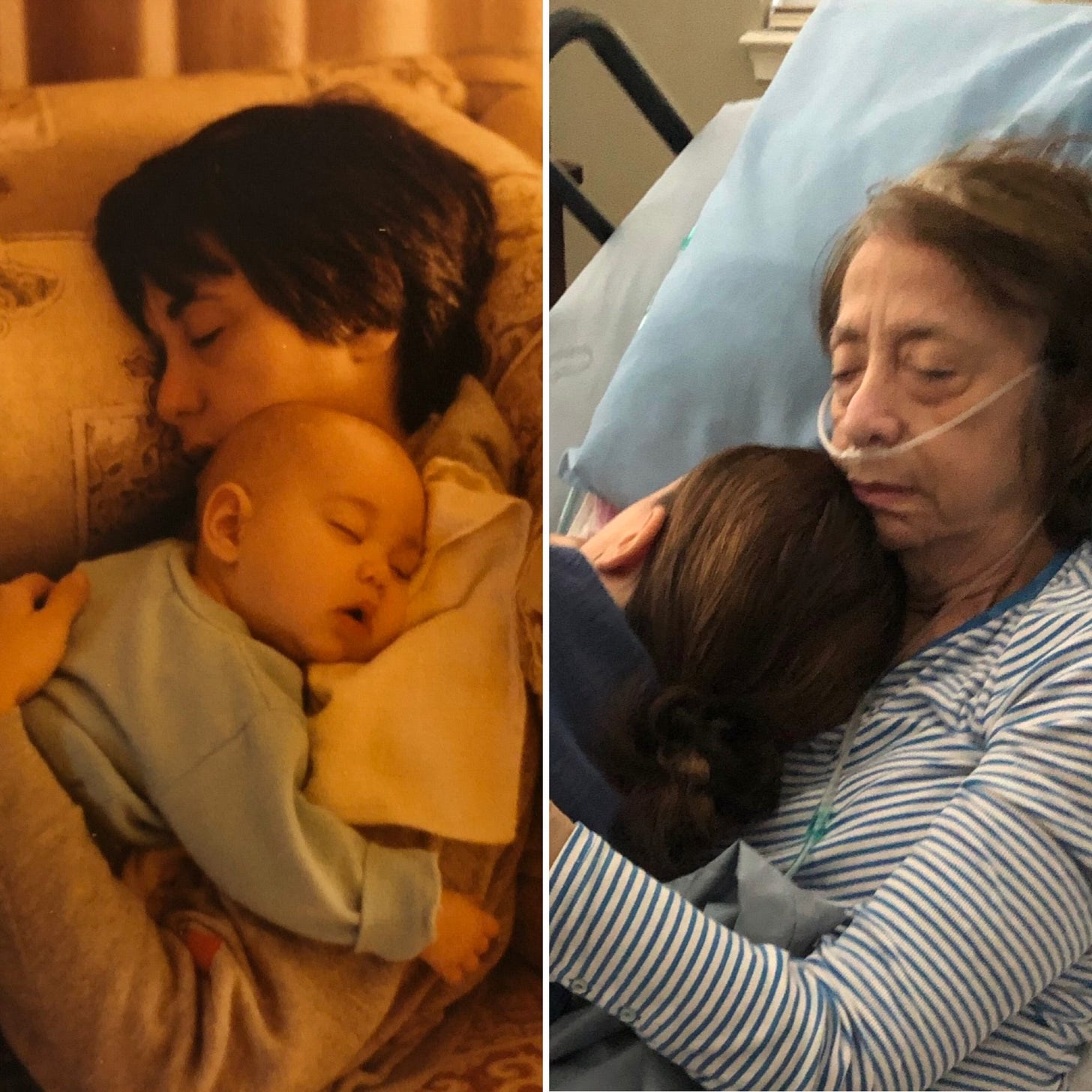

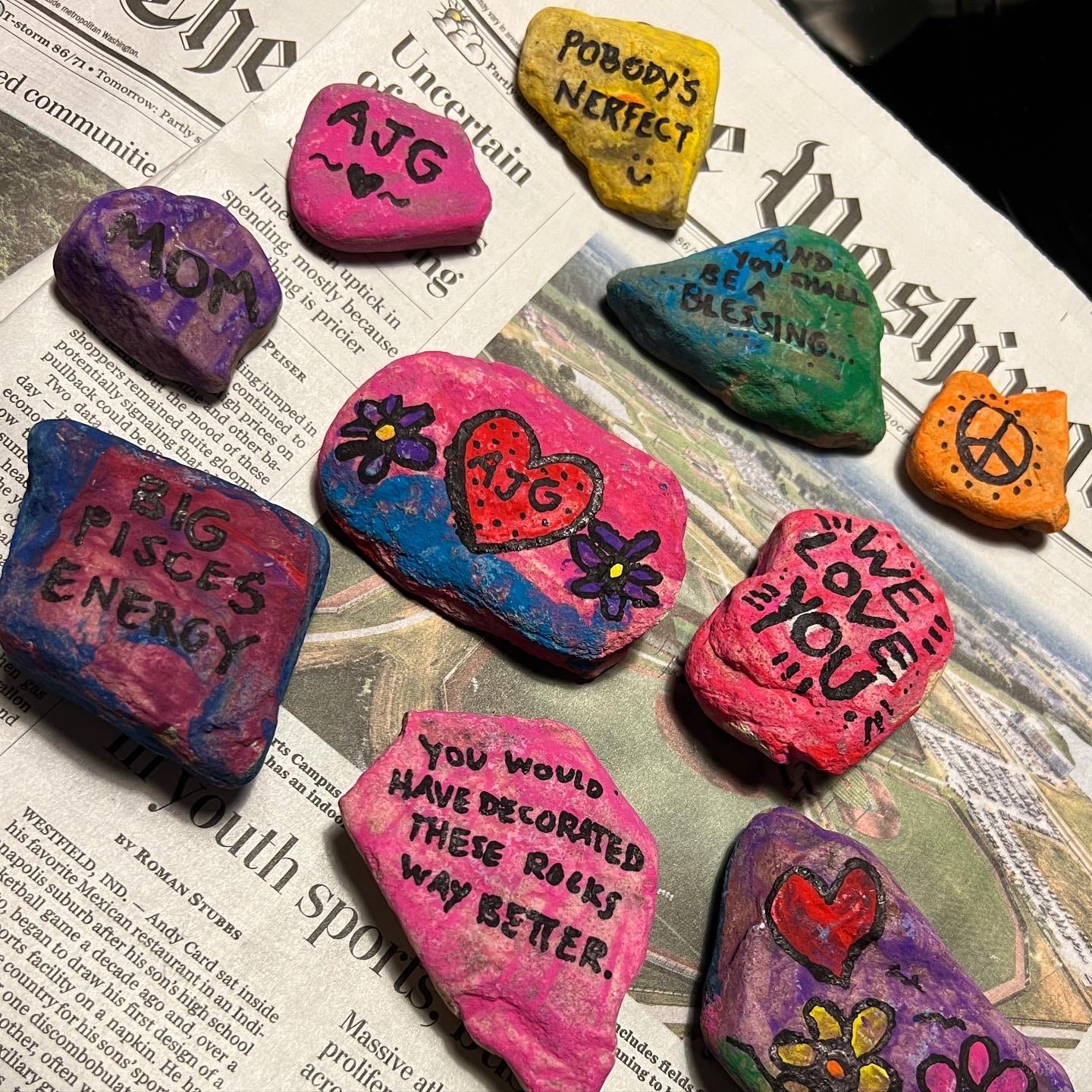
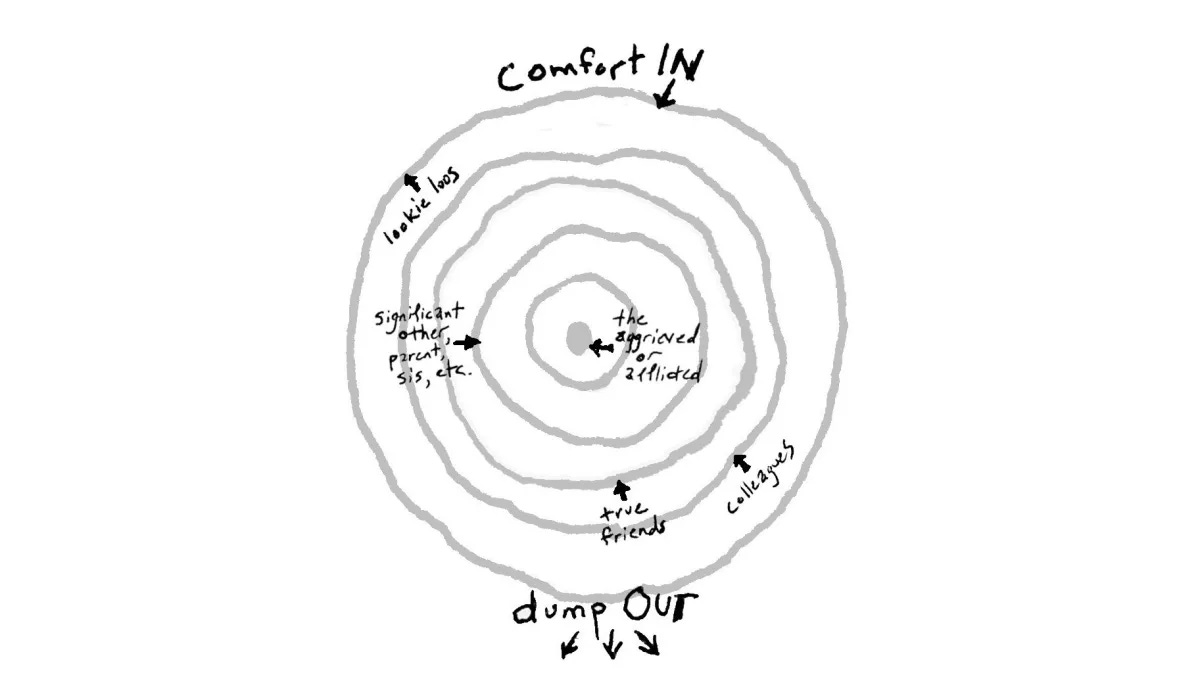
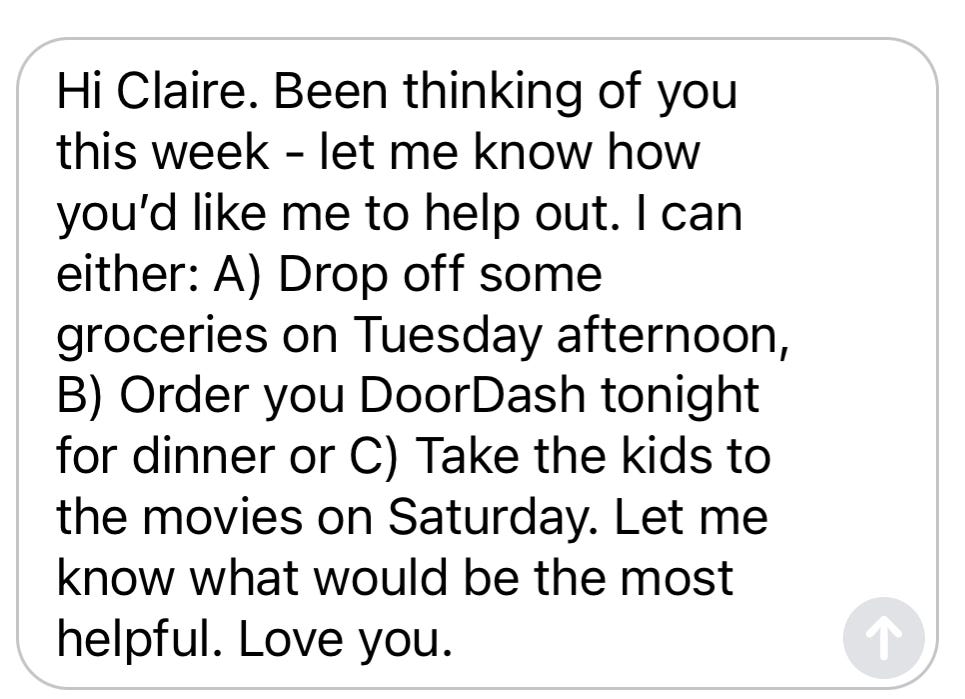
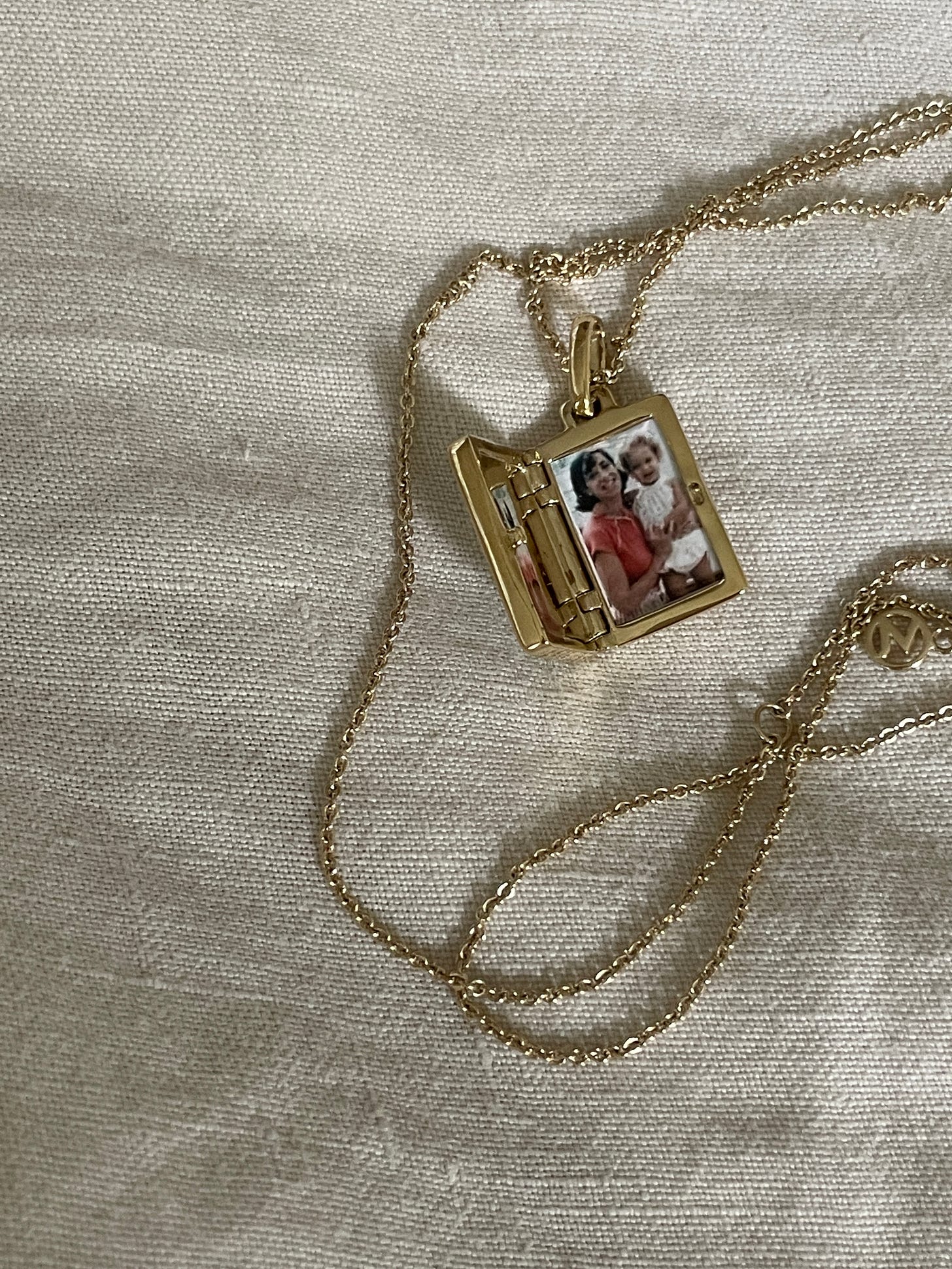
Great advice and true sensitivity to the wide, incomprehensible world of grief related to the loss of someone close to you. Besides, "At least . . " I'd add, never start a sentence with, "You should . . . ".
RING THEORY. Everyone should read and understand that. It's so, so important and will help you be a better human all around.